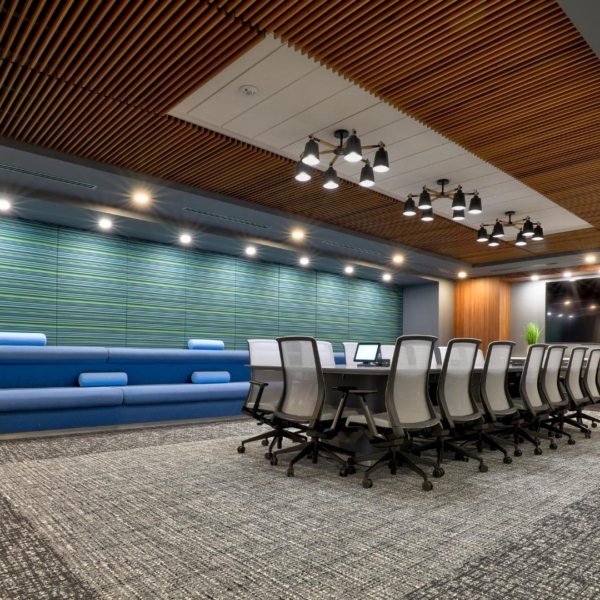On this page, we’ll discuss how do General Contractors in Miami handle construction budget management, how good general contractors in Miami Florida ensures quality work, and more!
Intro To General Contractors in Miami
General contractors in Miami are especially pivotal in transforming architectural visions into concrete realities. Their expertise lies in orchestrating the logistics of building and ensuring that every dollar is accounted for and stretched to its fullest potential.
By leveraging a blend of local market knowledge and comprehensive project management skills, these professionals navigate the complexities of cost control with precision—crucial for both residential and commercial projects where financial foresight equals success.
What Are the Key Components of Construction Budget Management?
Budget management in construction is crucial for successful project completion. It involves detailed planning and monitoring of costs throughout the project lifecycle. The first key component is a comprehensive budget plan. This document outlines all expected expenses, from materials to labor. General contractors in Miami often use sophisticated software to predict costs accurately.
Another vital aspect is cost tracking. Contractors must monitor expenditures to ensure they align with the initial budget. They review purchase orders, invoices, and receipts regularly for this purpose. Any discrepancies can lead to adjustments in spending or project scope.
- A comprehensive budget plan
- Cost tracking
Effective communication among stakeholders forms another cornerstone of budget management. Project managers, clients, and commercial general contractors in Miami need regular updates on financial matters.
Risk management also plays a part here; unforeseen issues like weather delays or material shortages can impact finances heavily if not appropriately planned.
- Communication with stakeholders
- Risk management strategies
Lastly, contingency funds are essential to buffer against unexpected costs arising during construction projects.
Why Is Effective Budget Management Essential for General Contractors?
Cost Control
Effective budget management allows general contractors in Miami to maintain control over project costs. This is crucial as construction projects are complex, with many variables affecting the final price.
When Should General Contractors Begin Planning Their Construction Budgets?
Early Stages
General contractors in Miami should start their budget planning at the earliest project stages. This includes the concept development and design phases. At this point, they can assess potential costs and identify financial risks.
Contractors should consult architects, engineers, and clients to estimate material costs and labor. For example, a commercial general contractor in Miami might analyze local building codes that could affect expenses. They must also consider site-specific conditions like weather or logistics that impact construction schedules.
Continuous Monitoring
Budget planning is not a one-time task; it requires continuous monitoring throughout the project’s lifecycle. Regular reviews help adjust for unexpected changes or cost overruns.
Contractors should implement tracking systems to monitor expenditures against the budgeted amounts. In case of discrepancies, immediate action is necessary to mitigate financial impacts without compromising quality or deadlines.
How Do General Contractors Set and Monitor Construction Budgets?
General contractors in Miami are tasked with the critical role of budget management throughout a construction project. They set budgets by first understanding the full scope of work. This includes all materials, labor, equipment, and any other costs that may arise during the project. They often use detailed cost-estimating software to ensure accuracy or consult historical data from similar projects.
Once a budget is established, monitoring expenses becomes paramount to stay within financial boundaries. Contractors employ various tools and techniques for this purpose:
- Regularly updating expense records.
- Comparing actual spending against projected figures.
- Utilizing financial management software specific to construction.
These methods help identify discrepancies early on, allowing for timely adjustments. For instance, if material costs increase unexpectedly, a contractor might source alternative suppliers or negotiate better prices to keep on budget.
Communication also plays an essential role in managing finances effectively. Miami construction companies must maintain open lines with clients and stakeholders about monetary concerns. Transparency ensures everyone understands where money is going and why certain decisions are made regarding expenditures.
Why Should General Contractors Allocate Funds for Contingencies?
Unforeseen Costs
General contractors in Miami face unpredictable challenges. Weather, labor fluctuations, or material price hikes can derail budgets. Contingency funds act as a financial buffer.
Contingencies cover unexpected expenses without compromising project integrity. A construction company in Miami may encounter sudden foundation issues requiring additional work. Without contingencies, such costs could stall progress or lower quality to stay within budget.
Risk Management
Allocating funds for contingencies is proactive risk management. It ensures that a commercial contractor in Miami can address problems immediately without seeking extra funding.
Projects often have hidden complications only revealed during construction. For example, historical buildings might uncover preservation needs not initially considered. Having contingency funds allows general contractors to manage these risks effectively and maintain project timelines.
When Do General Contractors Adjust Budgets Due to Unforeseen Changes?
Material Fluctuations
General contractors often face unexpected costs when material prices change. These fluctuations can occur due to market volatility or sudden scarcity of resources. For instance, a construction company in Miami might quote a lumber price based on current rates. If those rates increase suddenly, the contractor must adjust the budget accordingly.
Material cost changes are not rare. They require quick action to keep projects within financial boundaries. Contractors must communicate these adjustments clearly with clients to maintain trust.
Project Scope Shift
Sometimes, project specifications evolve after work begins. A commercial contractor in Miami may need more funds if a client requests additional features or design alterations that were not part of the original plan.
Scope changes typically result in budget revisions. This ensures that all new requirements are met without compromising quality or deadlines.
Unexpected Challenges
Contractors encounter unforeseen challenges during construction regularly. These could be hidden structural issues or complications with local building codes that weren’t apparent until work started.
When such obstacles arise, general contractors reassess and modify budgets to resolve them efficiently and effectively.
What Role Does Risk Assessment Play in Construction Budgeting?
Risk assessment is critical for general contractors in Miami. It helps identify potential issues that could inflate costs. Contractors use risk assessments to create realistic budgets. They consider weather, supply chain delays, and labor shortages.
A thorough risk assessment leads to a comprehensive budget plan. This includes contingencies for unexpected expenses. For example, sudden material cost increases can impact the budget significantly. By anticipating such risks, contractors are better prepared to handle them without compromising the project’s financial stability.
Contractors must also factor in local construction regulations and codes when assessing risks. Non-compliance can lead to costly penalties or project delays. Understanding these aspects ensures that general contractors Miami-based can set aside funds accordingly.
Here are some key benefits of conducting a detailed risk assessment:
- Prevents cost overruns: By identifying potential financial pitfalls early on.
- Improves stakeholder confidence: Clients trust contractors who demonstrate foresight and planning.
- Enhances decision-making: With clear insights into possible challenges, decisions are more informed.
In contrast, failing to conduct proper risk assessments can result in:
- It needs to be more accurate in the necessary budget.
- Delays due to unforeseen regulatory hurdles.
- Increased client dissatisfaction if projects go over budget or schedule.
General contractors utilize their expertise to mitigate identified risks proactively. They may negotiate with suppliers for better prices or adjust timelines based on reliable weather forecasts.
Effective risk management by construction companies in Miami is essential for successful project completion within the allocated budget.
How Do General Contractors Ensure Transparency in Budget Communication?
General contractors in Miami prioritize clear budget communication. They understand that a well-informed client trusts the process more. To ensure transparency, they adopt several strategies.
Firstly, detailed itemization of costs is essential. Contractors list materials, labor, and other expenses separately. This clarity helps clients see where their money goes. Secondly, regular updates keep everyone on the same page. As projects progress, unexpected costs may arise. Prompt reporting of these changes prevents surprises later on.
Moreover, some construction companies in Miami use specialized software for budget tracking. This technology provides real-time data to both contractors and clients alike.
- Detailed cost breakdowns
- Regular financial updates
- Use of budget management software
These methods demonstrate commitment to openness throughout the project lifecycle.
Another critical aspect is the inclusion of clients in decision-making processes related to finances. General contractors actively involve their clients when choices about materials or design changes that affect cost must be made.
Clients are encouraged to ask questions and provide input. This collaborative approach fosters a partnership atmosphere rather than a transactional one. It leads to better outcomes for all involved parties. In this way, general contractors manage budgets effectively and build lasting relationships with their clientele through trust and integrity.
Conclusion
Effective budget management is the cornerstone of successful construction projects for general contractors in Miami. By integrating key components such as early planning, risk assessment, and contingency allocation, these professionals ensure that projects are delivered on time and within financial constraints. Budget adjustments in response to unforeseen changes underscore the dynamic nature of construction management, demanding adaptability and clear communication. The role of transparency in budget dealings cannot be overstated, as it fosters trust between contractors and stakeholders and mitigates potential disputes.
General contractors must continually refine their budgeting strategies to maintain a competitive edge in Miami’s bustling construction industry. As they navigate through complex projects, adherence to best practices in budget management is not just a recommendation but a necessity for business sustainability and growth. Engaging with contractors prioritizing meticulous budget oversight is imperative for those seeking excellence in construction services. Explore further how these principles can transform your next project by contacting a seasoned general contractor today.










